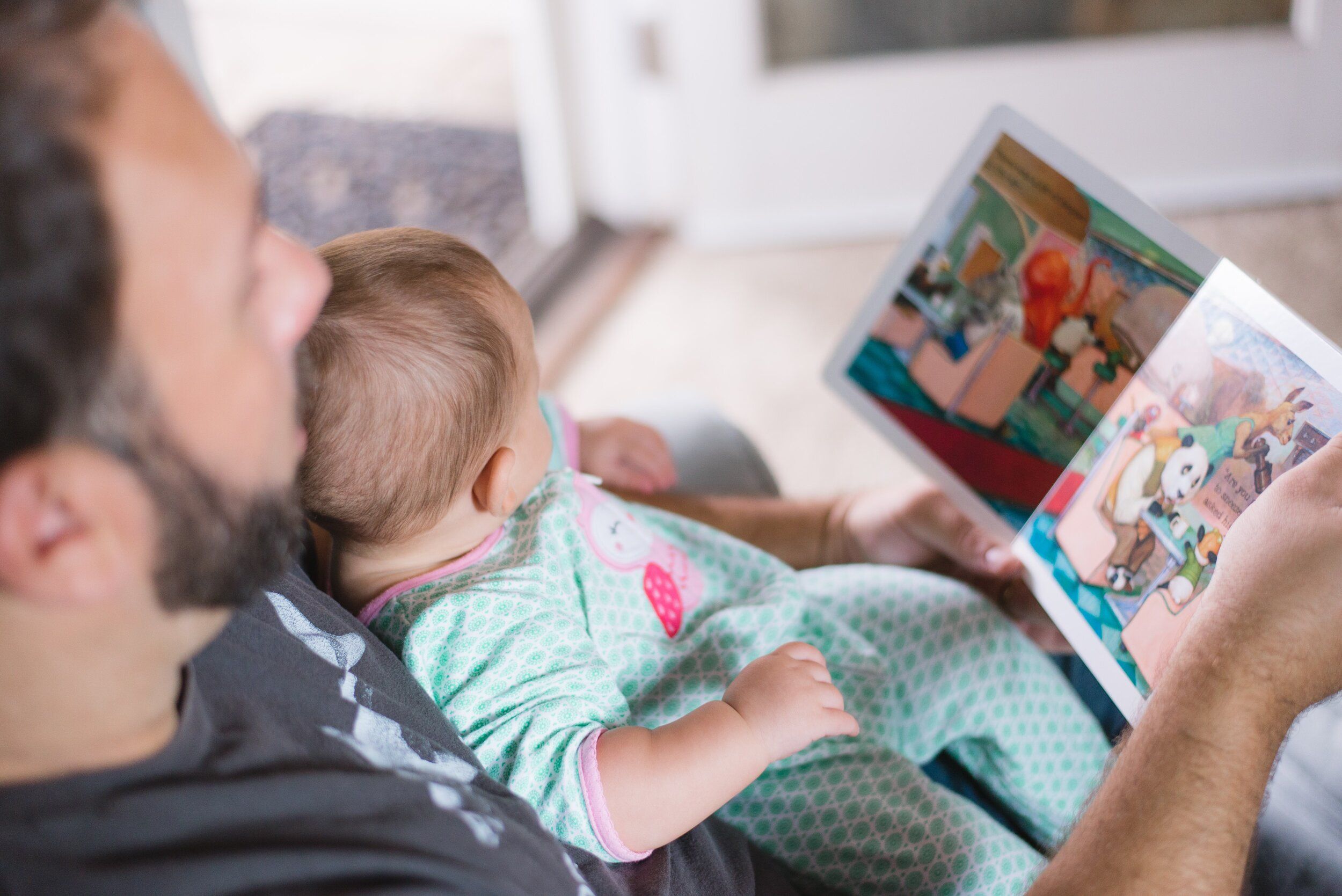
Dads: Lockdown is the time to lean in, not lean out.
Dads turn up these days.
They come to parent teacher interviews and workshops. They take kids to swimming classes and ballet and gymnastics. They help their kids with homework and take on the bedtime ritual of bath, teeth and story-time. This involvement builds stronger relationships between fathers and children, and between parents who don’t need to feel resentment over unequal sharing of family responsibilities. But lockdowns are putting pressure on those responsibilities and dads need to keep turning up.
We run parent workshops at schools and early childhood centres all over Victoria and NSW. About 30% of parents who attend are dads, and they say they want to be fully involved in their child’s life. They want the best for their kids. They want to do everything they can to make sure their kids grow up safe and happy. Not only do they turn up, they’re asking the most important question they can ask: “What can I do?”

Keep turning up
Now, with half the country in lockdown, childcare centres in Victoria closed to everyone but children of essential workers, and hundreds of thousands of school kids doing remote learning, the pressure on parents is immense. And the answer to that important question asked by so many dads is simple and obvious. Keep turning up.
Take equal time to help your kids with remote learning. Read to pre-schoolers. Play with them. Remember that raising your children is your job as much as it is your partner’s job. You’re not there to help, you’re there to participate. Equally. You can’t just tell your kids that equality is important, you have to show them.
A recent poll commissioned by the Minderoo Foundation shows there are too many Australian homes where this is not happening. In two parent families, 64 percent of men say their partner has made sacrifices in their career to look after the family compared to only 36 percent of women in the same situation.
ABS data on the effect of COVID in May this year shows men are more likely than women to rate their mental health as excellent or very good (45 percent men, 40 percent women). Related data shows women are twice as likely as men to have spent 20 or more hours a week on unpaid caring for children and more than five hours per week on unpaid housework.
All this data fills in a picture that is all too familiar to most working mothers in Australia. Women are doing too much of the unpaid work of the pandemic. Men are feeling pressured to prioritise their careers, but the only way they can do that is if women are doing everything else. Women are also feeling this pressure, but when the unpaid work is not shared equally, the pressure on women is becoming unbearable. They are paying too high a price, both professionally and personally.
This is the time for those men who turn up to ask, “what can I do?” Now. Not when it’s easy or costs nothing. Now, when the pressure is on and everything is difficult. If a principle only applies when it’s easy, it’s not a principle at all, it’s a sales pitch.

“This is the time for those men who turn up to ask, “what can I do?” Now. Not when it’s easy or costs nothing. Now, when the pressure is on and everything is difficult. If a principle only applies when it’s easy, it’s not a principle at all, it’s a sales pitch. ”
When it counts
Now is the time to look around and notice how much work needs to be done and do it because it needs to be done. Not only in our homes but in our workplaces. Employers (men too) need to give parents (fathers as well as mothers) time to care for children. Make that zoom meeting an email. Schedule meetings for afternoons when the hard yards of remote learning have been completed for the day.
Recognise that losing workers to the requirements of parenting in lockdown is a loss to your company as well as to their futures. Be part of the pressure on government to step up on supporting early childhood educators, and flexible work, because these are not a women’s issues, they are parent’s issues.

Level the playing field
This is about fathers deliberately taking on a mindset that says work and family responsibilities are shared equally among all the adults in the household because assigning them by gender harms everyone. All those dads who turn up and ask, “what can I do?” can’t be the fully present and involved father they want to be if their whole notion of family is based on the idea that parenting is really a woman’s responsibility.
The dads who want their children to grow up believing their lives will not be limited by gendered expectations understand this is not something they can achieve just by talking about it. They have to live it. Children need to see it in their own homes with their own parents to know that it’s possible.
What can you do? You can do the hard stuff. Now. When it matters. Because if you don’t, your partner will have to. And that’s not what the dads who turn up want for their partners, their families, their children or themselves.

